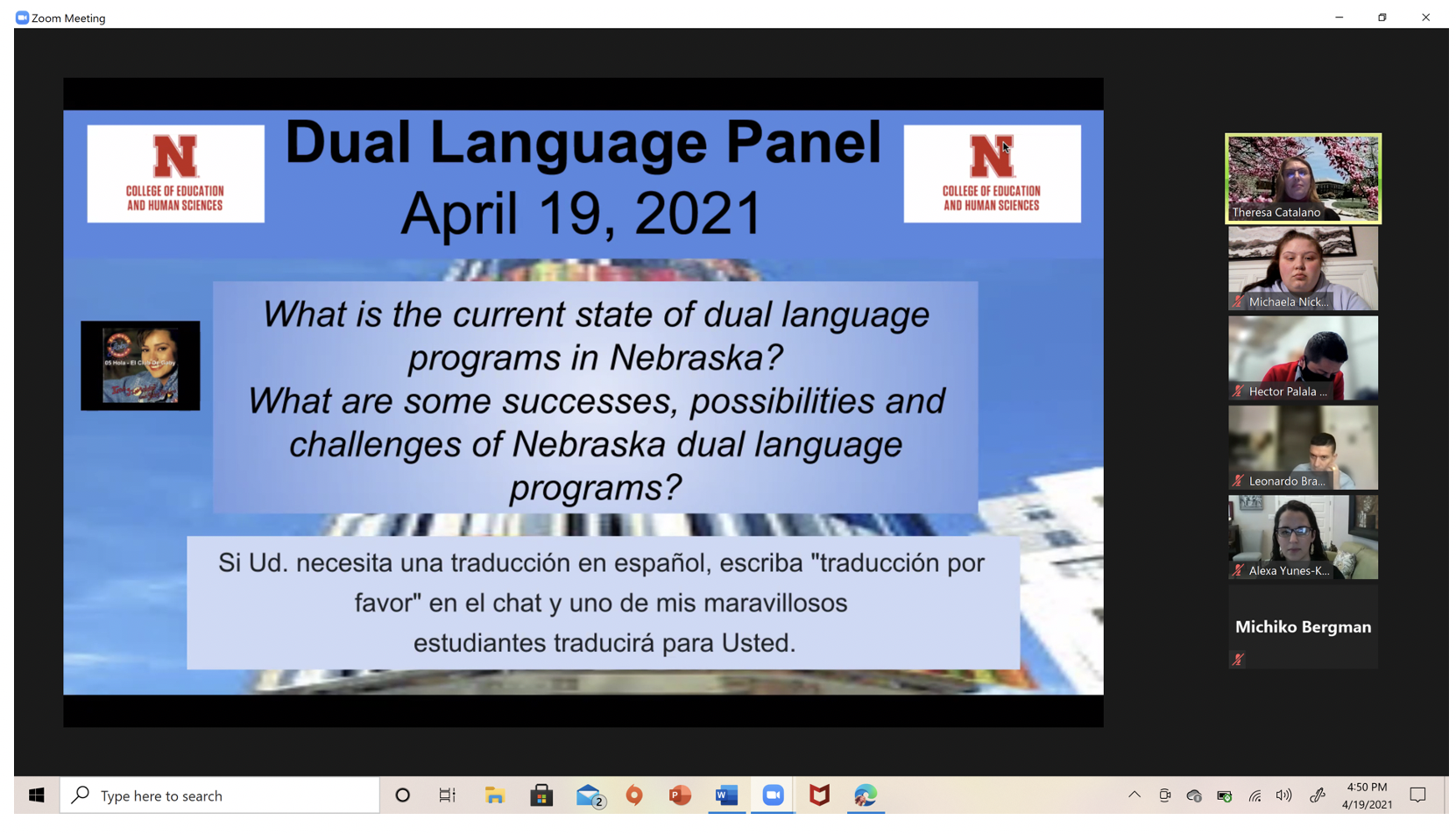
Panel explores successes, challenges and possibilities of dual language programs in Nebraska
20 Apr 2021
The current state of dual language programs in Nebraska was the topic of a panel on April 19. The event was hosted by the Department of Teaching, Learning and Teacher Education, and the M3 Initiative at the University of Nebraska–Lincoln.
Dual-language education refers to any program that provides literacy and content instruction to all students through two languages, and that promotes bilingualism and biliteracy, grade-level achievement, and multicultural competence for all students. During the event, over 50 dual language teachers, parents, students, administrators and community members gathered on Zoom to share successes, challenges and future possibilities of dual language programs. Panel members represented all of the dual language programs in Nebraska. There are currently 11 programs in Omaha and one program each in Fremont, Schuyler and Lexington.
“There are so many benefits of dual language programs and it really was incredible to hear from the people who attend the programs and teach in the programs about how much it does for Nebraska’s children,” said Theresa Catalano, associate professor in the Department of Teaching, Learning and Teacher Education. Catalano organized the panel for a graduate course she teaches, “Foundations of Dual Language,” as a way for students to learn more about these programs from the community.
"The panel was the perfect way for us to get an inside look into the reality of dual language programs, coming first-hand from the teachers, administrators, parents, and even students in those schools,” said Alexa Yunes-Koch, a doctoral student who served as a moderator for the panel. “One thing that really stuck out to me was that almost every panelist mentioned the joy that can be felt across their schools, highlighting the humanizing impact of these programs."
The benefits of dual language programs the panelists noted are intercultural abilities of students, opening their perspectives of the world due to living in two languages, the ability to maintain family ties because they could speak to their relatives who didn’t speak English, academic achievement, and increased cognitive abilities.
“What we know about dual language and that research has shown, is that these programs are the most effective way to help students identified as English learners succeed,” said Catalano. “Knowing this, the question remains, why aren’t there more of these programs in Nebraska?”
When it comes to challenges to overcome to implement a dual language program, administrators pointed to issues of staffing, and noted that there is a need for more bilingual staff and preparation for these teachers in Nebraska.
According to the panelists, implementing more dual language programs will take the support of everyone in the community. María Pérez-Mozaz, dual language and world language teaching and learning consultant at Omaha Public Schools, urged those that recognize the benefits of dual language programs to share the information with local politicians and people across the state that can help support and grow the programs.
The M3 Initiative promotes the advancement of university-community initiatives for the education of (im)migrant, multilingual and multicultural populations. To learn more, visit https://cehs.unl.edu/tlte/m3-initiative/.
College of Education and Human Sciences
Teaching, Learning & Teacher Education